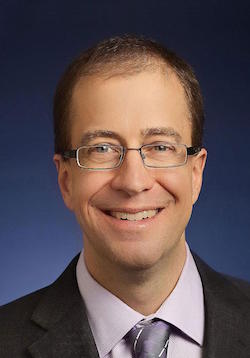 The NIH's Precision Medicine Initiative has selected Eric Dishman, former director of health innovation and policy at Intel, to serve as director of the PMI's Cohort Program.
The NIH's Precision Medicine Initiative has selected Eric Dishman, former director of health innovation and policy at Intel, to serve as director of the PMI's Cohort Program.
"Eric will lead NIH’s effort to build the PMI landmark longitudinal research study of one million or more U.S. volunteers to expand our ability to improve health and treat disease through precision medicine," NIH Director Francis Collins wrote in an announcement of the hire. "Eric comes to NIH with a deep understanding of the initiative, having played a critical role as a member of the PMI Working Group that deliberated intensively for several months last year to develop the design for this audacious study."
The government's $215 million Precision Medicine Initiative was first announced last year during President Obama’s State of the Union Address. About $130 million of the funding went to the NIH to develop a research cohort of at least one million people that would share health data to help researchers grow their understanding of preventive health and disease.
Six months later, the NIH announced that the organization was considering using smartphones and wearables for data collection and sought out feedback from the industry about using health sensing technologies for the initiative. Then in February of this year, Collins announced NIH would launch a Participant Technologies Center to test and maintain connected sensor technologies, in partnership with Vanderbilt and Verily (formerly Google Life Sciences).
In addition to his work with Intel, Dishman has become known as a digital health speaker and thought leader as well as, in recent years, a patient advocate, following his own battle with a rare form of kidney cancer, which he beat with the help of precision medicine.
"Eric brings the patient experience to the heart of innovation and science," Collins wrote. "After battling a rare form of kidney cancer for 23 years — and advocating personally for more than 1000 other cancer patients along the way — he became cancer-free thanks to early access to precision medicine that clarified the right treatment plan for him. These experiences and perspectives are crucial to the PMI Cohort Program, which, in addition to advancing health and improving treatments for disease, will also pioneer a new model of research in which participants will be partners in the research process and actively engaged and informed."
In other PMI news, Politico reports that the Precision Medicine Taskforce just drafted recommendations to the ONC yesterday about the technological requirements to enable data sharing. They laid out a three part plan: the first stage is for the NIH to secure data from EHRs for the initiative, the second is to gain access to claims and lab data, and the third is to return that data to the patients in aggregated form. The final reccomendations will be presented April 19th to the Joint Health IT Committee.













